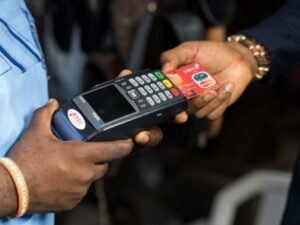The Impact of Cashless Policy in Nigeria’s Retail Sports Betting Business
Nigeria’s sports betting industry has been experiencing tremendous growth over the last decade thanks to the love affair with football among the teeming youth populace. This growth has primarily been attributed to the retail-centric approach of the business by sports betting operators.
However, the retail sports betting business growth success could derail in the next couple of years with the apex bank policy to promote a cashless policy. However, the retail business of the industry is a force to reckon with in Africa. Over the years, the growth has positioned the country on the world map for investors to regard the market as one of Africa’s most prominent sports betting markets, with the industry worth millions of dollars today. This has been evident in the last couple of years, with some of the leading brands in the retail market expanding to other territories.
A case study is Betking, launched in 2018. It saw an investment worth million in the space two years after its launch in Nigeria’s sports betting space and is present in Ghana, Ethiopia and Kenya. The deal saw the company sell some of its shares to multichoice in a deal worth $281.5 million.
However, as mentioned, there could be a turning point in the retail sports betting business in Nigeria, and that is mainly to the new cashless and naira redesign policy introduced by the Nigeria Central Bank (CBN), which is aimed at increasing financial inclusion, reducing vote buying, armed robbery, terrorism financing, ransom payment amongst others.
It is worthy of note that many of the citizens are not happy with the new development because of the scarcity of cash to meet up with day-to-day activities with the policy allowing individuals to withdraw through the ATM’s 20,000 Naira daily (43$) a country that its people largely dependant on cash at hand, with about 60% of the population still unbanked, and 31% falls under the illiterate rate.
However, the cashless policy is facilitated by 900,000 Pos terminals, 14,000 ATMs nationwide, and 1.4 million agents nationwide though N48 billion (104 million dollars) in POS transactions in 2012 to N6 trillion (13 billion dollars) today. Similarly, electronic transfer has grown from N3 trillion (6.5 billion dollars) in 2012 to 300 trillion (652 billion dollars) as of October 2022-a 7,000 per cent increase. According to the Nigerian Communication Commission, the cashless policy is further complemented by mobile phone penetration in Nigeria, which stands at 152 million. However, some welcome the new development, especially among the elites.
Interestingly, as mentioned in the article, retail sports betting was the primary source of revenue for betting companies before the emergence of online betting, a new phenomenon thanks to internet and smartphone penetration growth.
However, in recent weeks, Nigerian bettors have been retail-inclined, but the current situation has forced many to place their wagers online with little or no cash to go to retail shops. The retail-centric customers are now adopting an online-centric approach to placing bets. In contrast, it is evident during the Covid-19 lockdown, with different companies attributing new traffic of players in the country. Although online betting and gambling have been received with both arms by punters and the number of online bettors keeps skyrocketing in recent months, retail has fetched millions of dollars for operators in Nigeria and remains a considerable source of income for sports betting firms.
Also, the new policy has affected retail patronage because bettors need cash to wager in shops. Understandably, this will significantly impact revenue for many operators who need more online presence. Still, more retail-inclined operators, like Bet9ja, 1960bet, Betking, etc., have huge customers that stake wagers on different market options in shops like virtual games and betting on sports, to mention a few; these operators will be the biggest losers concerning this new CBN policy.
Sadly, if the policy comes to stay (which looks like the new norm with Nigerians already adjusting), it can lead to unemployment, with a vast chunk of workers working in retail shops across the country losing their jobs. With little or no patronage for retail shops, operators will be forced to reduce their staff to cut costs and balance the books. Conversely, this will be an advantage for operators with only an online presence (those with no retail shops in the country). The influx of bettors switching from retail to online that in turn, will increase patronage for these operators. Betting companies like Sportybet, Msport, 1xbet, 22bet, and the like will be the primary beneficiaries of this new policy.
Conclusively, although the cashless policy has yet to be signed and sealed (there is the possibility of it being lifted if a new administration emerges). However, suppose the scarcity of cash remains. In that case, all betting operators in the country should focus more on how to increase their online presence or introduce another payment system for retails like using Point Of Sale (POS) machines for customers to wager, USSD betting or any other kind of payments that won’t require using cash.

[…] Sports betting Impact of Cashless Policy in Nigeria Retail […]
[…] Sports betting Impact of Cashless Policy in Nigeria Retail […]